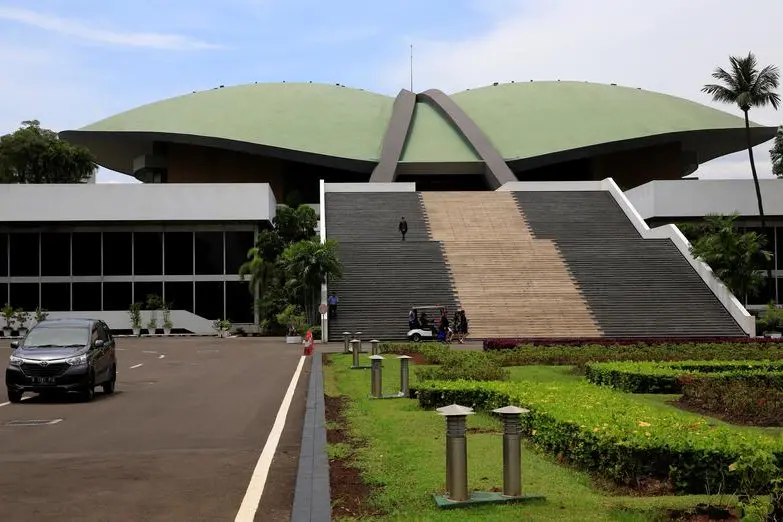PHOTO
JAKARTA - Indonesia's parliament on Tuesday approved changes to a law governing the country's anti-corruption agency, sparking alarm among activists who say revisions that include curbing its freedom to wiretap suspects will hurt the fight against graft.
The Corruption Eradication Commission, known by its Indonesian initials, KPK, has prosecuted hundreds of politicians, officials, and businessmen since its formation in 2002, becoming one of the country's most respected agencies.
Analysts and rights groups say the agency has helped boost governance and transparency in Southeast Asia's largest economy and improved the country's investment climate.
"When the revisions are set in motion, corruption in regional areas will run amok," said Muhammad Isnur of the Foundation of the Indonesian Legal Aid Institute.
He said there was a plot "to weaken and amputate the KPK" and noted the approval had been done in a matter of days by a parliament that usually spends months debating changes.
There have been previous attempts by politicians and police to undermine the agency, which has widespread public support but has often been a thorn in the establishment's side.
But Tuesday's vote marks the first time revisions to the 2002 law have been approved.
Tuesday's revisions also mean that an external board will now have oversight and have the power to authorise whether the KPK can carry out wiretaps.
Under the changes, independent investigators will also become civil servants and need to be seconded from state bodies, including the police.
The KPK has at times clashed with senior police officers, including in 2015 when it said President Joko Widodo's sole candidate to become police chief was a graft suspect. His appointment was later overturned amid a public outcry, though the legal case against him was later dropped.
Member of parliament Johnny G. Plate defended the changes, saying all state agencies needed oversight.
"There is no state institution in the world that does not have a supervisory board, without checks and balances," Plate told Reuters.
But activists fear the revisions are designed to weaken the agency, and have led a series of "save the KPK" rallies with protesters gathering in front of parliament before Tuesday's vote.
Many of the KPK's investigations have involved members of parliament. A former speaker of the house is among those who have been convicted of graft.
Widodo, who has 30 days to sign the law, has defended the changes and stressed that he would not compromise in the fight against graft. urn:newsml:reuters.com:*:nL3N2640WL
Widodo said on Friday that a supervisory board was necessary for "good governance", though he said he would pick the members and they would include researchers and anti-corruption activists, not politicians or bureaucrats. MP Teuku Taufiqulhadi said on Tuesday that the external board would be selected by Widodo, instead of parliament as initially planned.
The government has also faced questions from rights groups over the makeup of the KPK’s new board of commissioners.
The KPK's chief, whose term is ending, will be replaced by police inspector general, Firli Bahuri, who has been accused of ethical violations during a previous attachment at the KPK.
Bahuri has said the alleged violations were an internal matter for the KPK.
(Reporting by Stanley Widianto, Maikel Jefriando, and Agustinus Beo Da Costa, and Fanny Potkin; Writing by Fanny Potkin; Editing by Himani Sarkar, Robert Birsel, Ed Davies & Kim Coghill) ((f.potkin@thomsonreuters.com;))





















